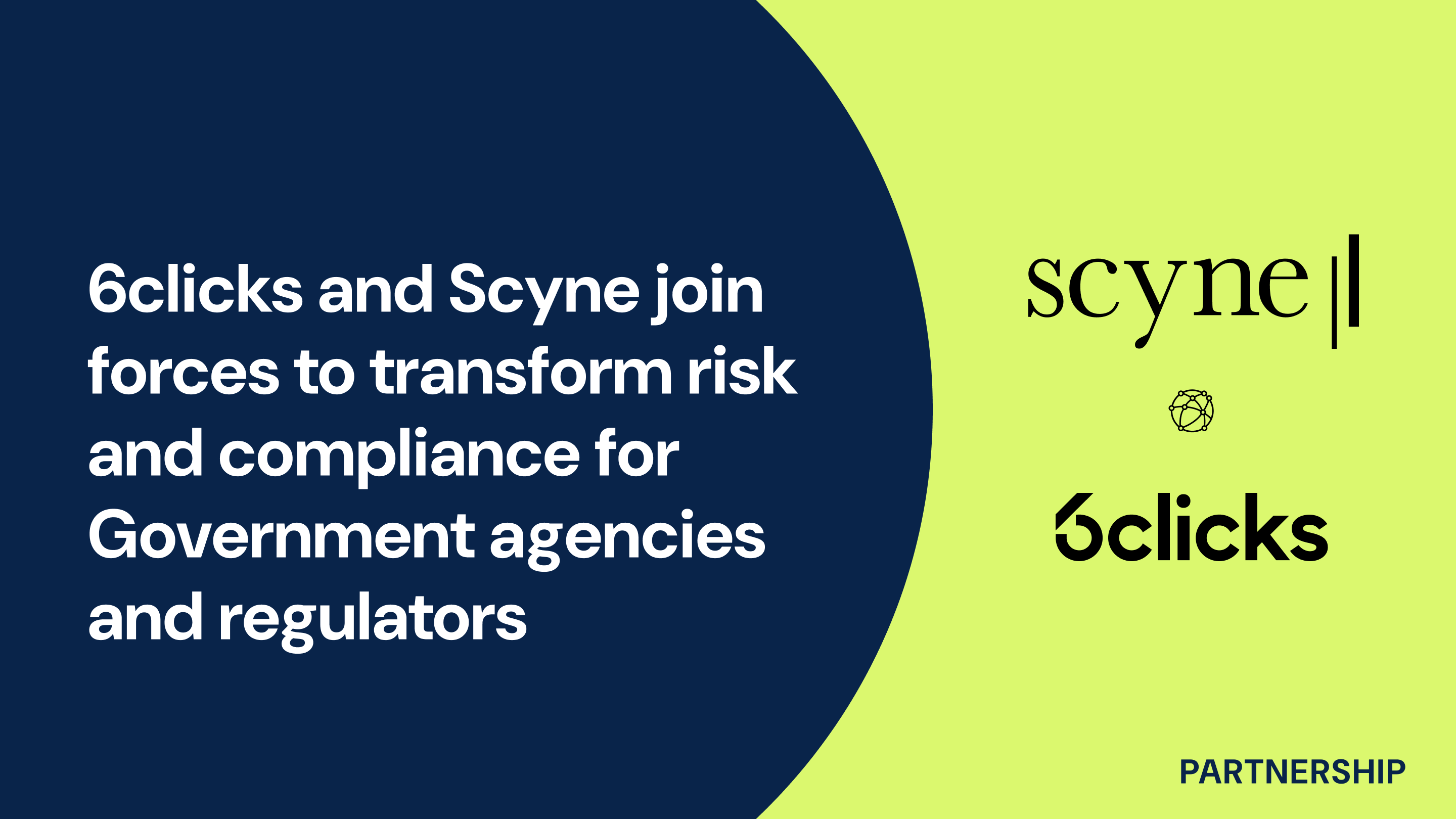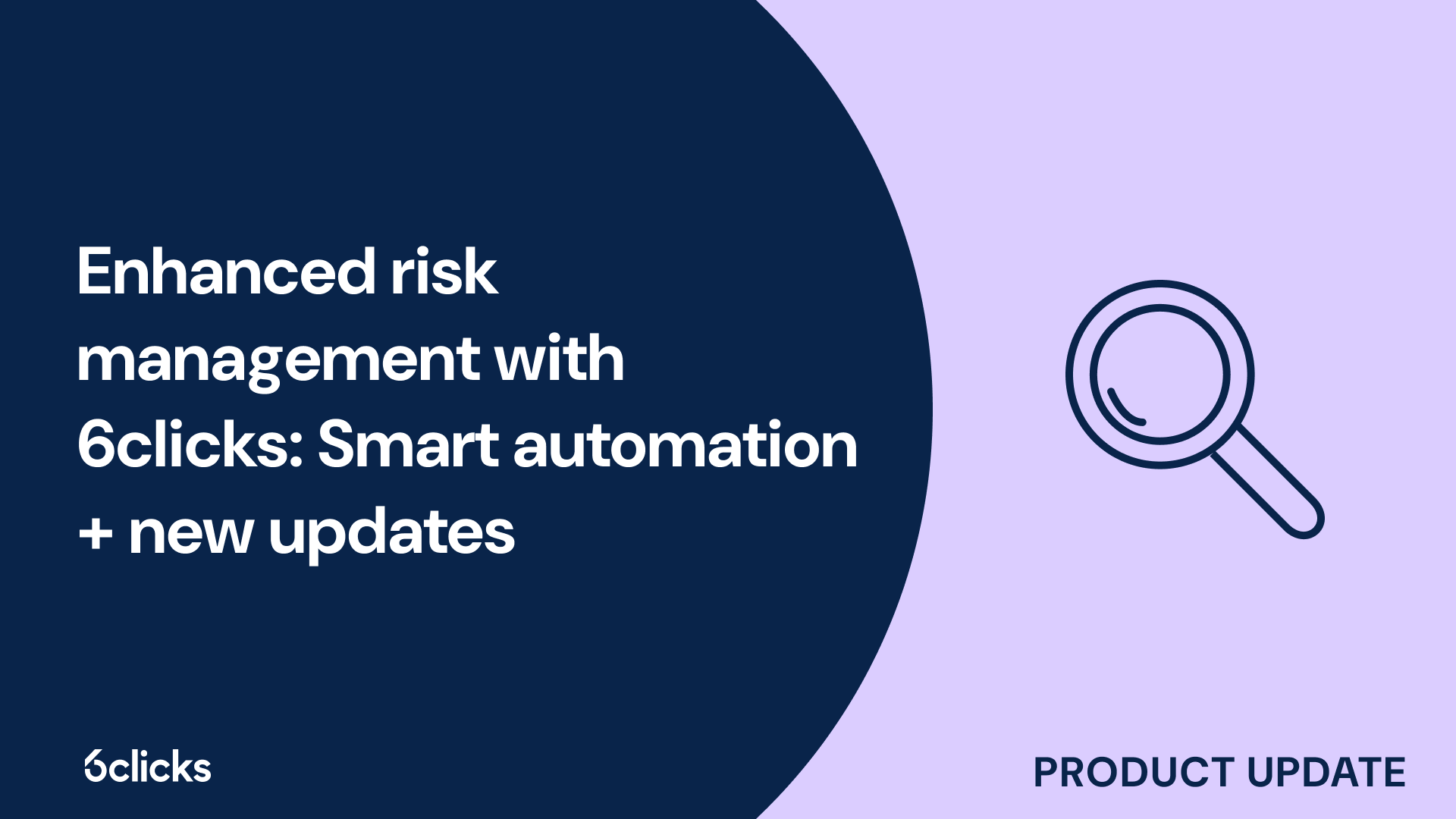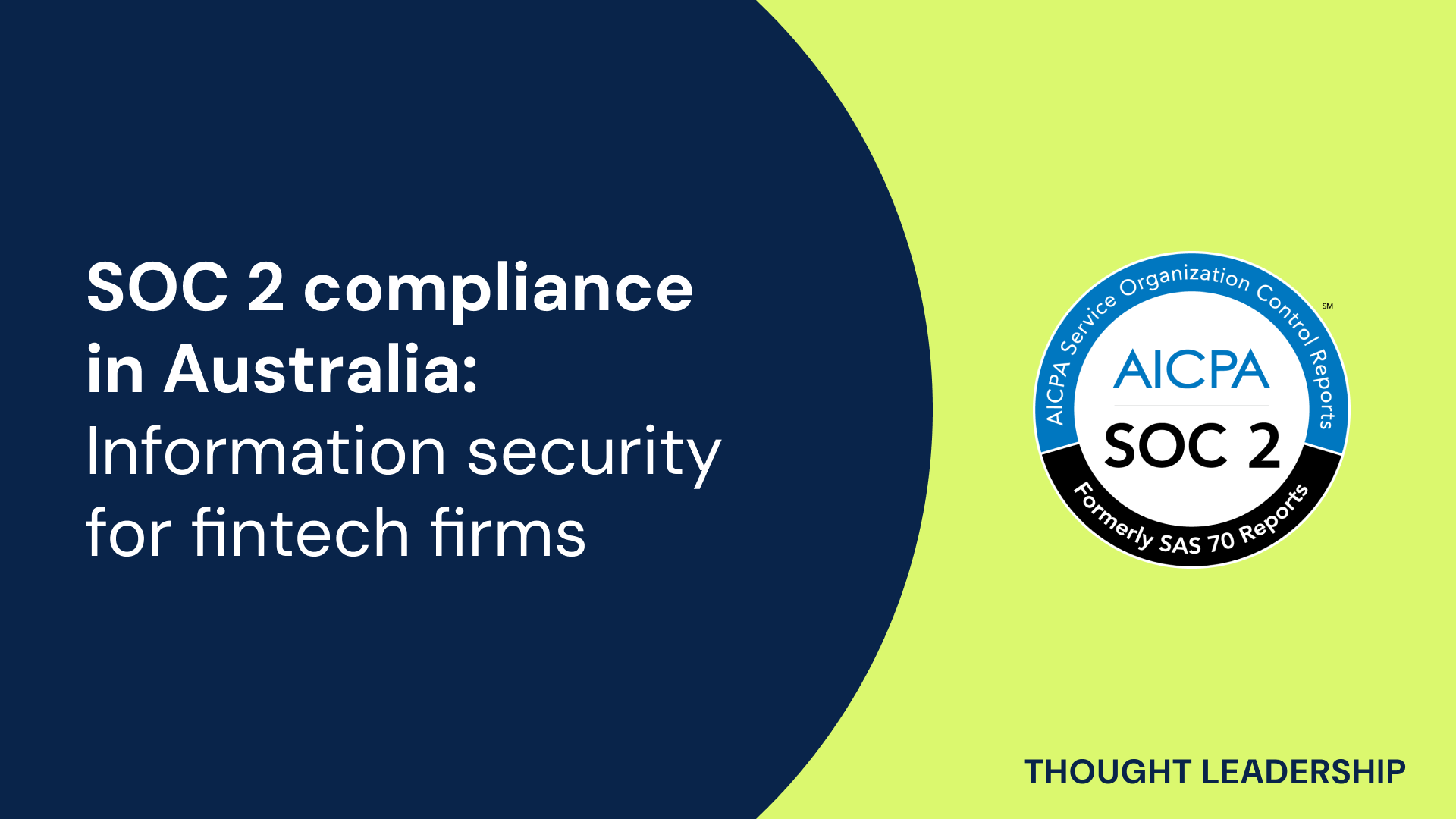The GRC buyer’s guide for 2025: Building resilience with AI-powered, federated solutions
Discover the ultimate GRC buyer's guide for 2025! Uncover how AI-powered, federated solutions transform compliance and security management for industries like government, aerospace, banking, and more. Learn about centralized control, continuous compliance, and advanced cyber GRC capabilities. Download now!
-1.png?width=200&height=249&name=Group%20193%20(1)-1.png)
The GRC buyer’s guide for 2025: Building resilience with AI-powered, federated solutions
Definition of Security Clearance
Security clearance is a crucial step in the process of safeguarding national security in Australia. It involves an assessment of an individual's background, character, and integrity to determine whether they are eligible for access to classified information, facilities, or sensitive government positions. The level of security clearance granted is determined by the specific clearance level required for a particular role or access to certain classified material. The security clearance process in Australia involves comprehensive background checks, interviews, and reviews by government agencies to ensure the suitability and trustworthiness of individuals seeking clearance. If an individual fails to meet the necessary criteria or raises concerns during the clearance process, they may be denied clearance, and specific consequences and procedures are followed as a result.
Security clearance refers to the formal authorization granted to individuals to access classified information, facilities, or sensitive positions within the Australian government. It is a rigorous and multifaceted vetting process that aims to ensure that those granted clearance can be trusted with national security information. The process includes assessments of an individual's personal and professional background, including criminal records, financial history, and associations. The level of clearance granted is determined by the type and sensitivity of the information or position being accessed. There are multiple levels of security clearance, ranging from Baseline to Negative Vetting level 1 (NV1), Negative Vetting level 2 (NV2), and Positive Vetting (PV). The Australian Government Security Vetting Agency (AGSVA) is responsible for conducting security clearance assessments and making clearance decisions. If an individual fails to meet the required criteria or raises security concerns during the assessment process, they may be denied clearance, which can have significant implications for their career prospects within the federal government or specific roles requiring security clearances.
Overview of security clearance in australia
Security clearance is a vital aspect of preserving national security in Australia. It entails a thorough evaluation of an individual's background, character, and integrity to determine their eligibility for accessing classified information, facilities, or sensitive government positions. The level of security clearance granted depends on the specific clearance level required for a role or access to classified material.
The security clearance process in Australia involves comprehensive background checks, interviews, and reviews conducted by government agencies. There are different levels of security clearances, namely Baseline, Negative Vetting Level 1 (NV1), Negative Vetting Level 2 (NV2), and Positive Vetting (PV). Each level requires different requirements and assessments, with higher levels requiring more extensive investigations.
The purpose of a security clearance is to ensure that individuals granted access to classified information or sensitive positions are trustworthy and possess the necessary integrity. It helps prevent potential threats, unauthorized disclosures, or damage to national security.
The security clearance application and assessment process typically involves filling out forms, submitting statutory declarations, and undergoing various checks and investigations. This includes identity checks, employment history verification, financial checks, criminal record checks, and security interviews. Government agencies conduct these assessments to determine the suitability and reliability of applicants.
Reasons for failing a security clearance in australia
Reasons for failing a security clearance in Australia can vary depending on the specific circumstances and assessments conducted during the process. Common reasons include discrepancies or inconsistencies found within an individual's background checks, employment history, or financial records. Criminal records, including past convictions or ongoing legal issues, can also lead to a failed security clearance. Additionally, any evidence or suspicion of an applicant's involvement in activities that pose a security concern or potential threat to national security can result in a denied clearance. Furthermore, factors such as a history of financial difficulties, potential susceptibility to financial intimidation, or associations with individuals involved in illegal activities may also lead to a failed security clearance. It is important to note that each case is assessed on an individual basis, and the decision to deny clearance is made based on the overall evaluation of an applicant's suitability and reliability for accessing classified information or sensitive positions.
The review process
The review process for security clearance in Australia involves several steps and options for both Australian Public Service (APS) employees and non-APS employees.
For APS employees, the primary review is conducted by the Australian Government Security Vetting Agency (AGSVA). This review process involves assessing the individual's level of clearance and considering any security concerns. The AGSVA evaluates factors such as criminal records, financial difficulties, and potential threats to national security. The time frame for this primary review varies depending on the level of clearance required.
If an applicant fails the primary review, they can opt for a secondary review by the Merit Protection Commissioner (MPC). The MPC is an independent agency that ensures fair and reasonable decision-making in the APS. This review process allows the applicant to present evidence and arguments to support their case. The MPC examines the AGSVA's decision and determines if it was reasonable and based on all relevant information. The time frame for the secondary review is usually within 15 working days.
In addition to the primary and secondary reviews, individuals who are dissatisfied with the decision can lodge a complaint with the Commonwealth Ombudsman. This independent body investigates complaints about administrative actions taken by Australian government agencies. The Ombudsman reviews the overall process and ensures that all relevant factors have been considered.
Criminal record check
During the security clearance application process in Australia, a significant factor that is assessed is the applicant's criminal record. The Australian Government Security Vetting Agency (AGSVA) conducts thorough criminal record checks to ensure the suitability of individuals for security clearance.
When assessing an applicant's criminal record, several factors are taken into consideration. These factors include the seriousness of the offense committed, the age of the offender at the time of the offense, and the time that has passed since the crime was committed. This comprehensive evaluation helps determine whether the individual poses any potential security risks.
To complete the criminal record check, applicants are required to provide specific documents and details. This typically includes providing details of all convictions, both spent and unspent, as well as any pending charges. It is crucial for applicants to be honest and transparent during this process. Failure to disclose relevant convictions can be seen as untrustworthy and dishonest, potentially leading to the denial of security clearance.
Therefore, it is of utmost importance for applicants to honestly declare all convictions and provide accurate information regarding their criminal record. By doing so, applicants demonstrate the qualities of integrity and responsibility, which are highly valued when determining their suitability for security clearance.
Employment history check
The process of employment history check plays a crucial role in the security clearance assessment in Australia. Vetting officials meticulously scrutinize an applicant's employment record to ensure their suitability for a clearance level.
During this assessment, any gaps in the employment record are thoroughly examined. Applicants are expected to provide a detailed explanation for any periods of unemployment or inactivity. This could include reasons such as further education, travel, or personal circumstances. Providing a clear and honest account of these gaps is essential to maintaining transparency and credibility.
To proceed with the security clearance application, various documents and checks are required. These include valid identity documents, such as a passport or driver's license, to confirm the applicant's identity. Proof of Australian citizenship is also mandatory, ensuring that only citizens are granted access to sensitive information.
Additionally, a national police records check is conducted to assess an applicant's criminal history. This check helps determine any potential security risks posed by the individual. Vetting officials thoroughly review the results of this check as part of the employment history verification process.
Financial history check
When applying for a security clearance in Australia, a critical element assessed is the applicant's financial history. This scrutiny is particularly intense for individuals seeking a PV (Positive Vetting) level of clearance and may also apply to NV1 and NV2 (Negative Vetting) levels. The goal is to evaluate the applicant's financial stability and uncover any vulnerabilities that could be exploited.
In Australia, this financial history check typically involves scrutinizing credit history, which includes examining credit card repayments, loans, and any instances of financial distress. The Australian Security Vetting Agency (ASVA), part of the Department of Defence, may access credit reports from recognized credit reporting agencies as part of this process.
Additionally, applicants are often required to fill out a detailed financial statement. This statement provides a comprehensive view of their financial status, including assets, liabilities, income, and monthly expenditures. It's a key tool in assessing an individual’s financial health and identifying potential vulnerabilities.
The ASVA's thorough examination of an applicant's financial background serves to ensure that those granted access to sensitive or classified information are financially responsible and less susceptible to external pressures or coercion. This vetting process is a fundamental aspect of maintaining the integrity and security of Australian government operations.
Character reference checks
Character reference checks are an essential part of the security clearance process in Australia. As part of these checks, referees are interviewed face-to-face to gather information about the individual being vetted. These interviews provide an overall picture of the person's character and help assess their suitability for holding a security clearance.
The purpose of these interviews is to gather insights into the individual's personal and professional attributes, such as their integrity, loyalty, and reliability. Referees, who are typically individuals who have known the applicant for a significant period of time, are asked about their experiences and interactions with the individual in question.
During these face-to-face interviews, referees may be asked about the individual's conduct, ethical values, and relationships, both in their personal life and within the professional sphere. Referees may also be asked about any potential security concerns that may arise from the individual's behaviors or associations.
The information gathered from these character reference checks helps assess the individual's trustworthiness, judgment, and overall suitability for obtaining a security clearance. By conducting these face-to-face interviews, authorities can gain a holistic understanding of an individual's character and make more informed decisions regarding their clearance status.
Specific security concerns and reasons for rejection
Failing a security clearance in Australia can occur for various reasons, with specific security concerns and criteria leading to rejection. One common factor is financial irregularities. Individuals with significant debts, ongoing financial difficulties, or a history of fraudulent activities may be considered a potential security risk.
Another reason for rejection is a criminal record. Applicants with serious criminal convictions, especially those related to violence, theft, or national security threats, may be denied clearance. This is because such individuals may be susceptible to coercion, financial intimidation, or exploitation, posing a potential threat to the handling of sensitive information.
Ties to radical groups or associations with individuals involved in criminal or extremist activities can also be a cause for concern. Individuals deemed to have connections with organizations or individuals who pose a risk to national security may not be granted security clearance.
Moreover, gaps in an applicant's employment history may raise security concerns. Unexplained periods of unemployment or sudden changes in career paths can be viewed as potential indicators of hidden activities or affiliations.
Lastly, noncompliance with security regulations, such as mishandling classified material or failing to disclose relevant information, can lead to rejection. Failure to adhere to protective security requirements and demonstrate ongoing suitability for a security clearance can undermine an individual's eligibility for access to sensitive information.
Appeals process after being refused a security clearance
If an applicant is refused a security clearance in Australia, there is an appeals process that they can follow. The appeal process allows individuals to challenge the decision made by the relevant government agency regarding their security clearance application. The appeal can be initiated through a primary review, which involves a thorough examination of the initial decision and any supporting information provided. If the individual is not satisfied with the outcome of the primary review, they can opt for an internal review, where a different internal panel re-evaluates the case. It is important for the applicant to provide any additional evidence or information that may support their eligibility for a security clearance. The review processes are designed to ensure that decisions on security clearances are fair and transparent and provide applicants with the opportunity to present their case and address any concerns that led to the initial refusal.
When Is It appropriate to request a reconsideration?
When it comes to security clearances in Australia, it is important to understand the options available if your application is unsuccessful. If you fail to meet the eligibility criteria for a security clearance, it may be appropriate to request a reconsideration.
The timing for requesting a reconsideration differs depending on whether you are an Australian Public Service (APS) employee or not. APS employees have a primary review option available to them, which involves submitting a request for a security clearance reconsideration within 20 working days of receiving the initial decision. This review is conducted by the agency that made the clearance decision.
If you are not an APS employee, you have the option of a secondary review. This involves requesting a reconsideration from the Department of State within 15 days of receiving the initial decision. The Department of State will review the decision and may seek additional information if necessary.
In both cases, if you are not satisfied with the outcome of the reconsideration process, you have the option of lodging a complaint with the Commonwealth Ombudsman. The Ombudsman can review the decision-making process to ensure it was fair and reasonable.
It is important to note that the timeframes for requesting a review are strict, so it is essential to act promptly if you wish to have your security clearance decision reconsidered.
Consequences of failing a security clearance in australia
Failing a security clearance in Australia can have significant consequences for individuals seeking access to classified information, particularly in roles related to national security. The repercussions can vary depending on the severity of the security concern or the level of clearance sought. In many cases, failing to obtain a security clearance can result in individuals being deemed ineligible for certain government positions or contracts. It may also lead to the loss or termination of existing employment in sensitive roles. Additionally, a failed security clearance can have long-term implications, as it may affect future employment opportunities involving access to classified material. Consequently, those who fail a security clearance assessment may face difficulties in finding comparable roles or advancing their careers within certain sectors. Given the potential impact, individuals have the option to request a reconsideration or lodge a complaint to ensure a fair and reasonable process is followed in assessing their eligibility for security clearance.
Immediate/short-term consequences long-term consequences
Immediate consequences of failing a security clearance in Australia can have significant impact on employment prospects and access to classified material. When an individual fails a security clearance, they may be immediately removed from their current position or denied employment opportunities requiring such clearances. They may also lose access to classified information or confidential projects they were previously involved in.
In the short term, individuals who fail security clearances may face limitations in obtaining government positions, especially those involving national security or sensitive information. These restrictions can hamper career advancement and limit job prospects, particularly within government agencies or private organizations requiring security clearances.
Long-term consequences may include ongoing suitability assessments, which can negatively affect the individual's eligibility for access to classified material in the future. Failed security clearances may be viewed as a potential threat to national security or the confidentiality of sensitive information.
Additionally, individuals who fail security clearances may face restrictions and limitations on their interaction with certain government departments or sensitive facilities. Their access to certain areas or projects may be curtailed, and they may be subjected to more rigorous scrutiny and security checks in the future.
Failing a security clearance can have far-reaching consequences that can impact an individual's employment prospects, access to classified material, and ongoing eligibility for government positions. It is crucial to recognize the importance of maintaining the necessary clearance level and following the proper procedures to increase the chances of a successful clearance outcome.
What can you do if you fail your security clearance?
If an individual fails their security clearance in Australia, there are several steps they can take to address the situation and potentially mitigate the consequences. Failing a security clearance may have immediate impacts on job prospects, particularly within government or private organizations that require such clearances. In the long term, it can lead to limitations on accessing classified material and ongoing suitability assessments, which may jeopardize future career opportunities. However, there are ways to navigate this challenging situation, including appealing the decision, seeking further reviews, or addressing any concerns raised during the clearance process.
1. Appeal the decision:
Individuals who fail their security clearance can typically appeal the decision within a specific time period. The appeal process allows them to present additional evidence or provide explanations to address any concerns raised during the security clearance assessments. This can provide an opportunity to rectify any misunderstandings or inaccuracies that may have led to the failed clearance.
2. Seek further reviews:
Seeking further reviews is another option available to individuals who fail their security clearances. This can involve requesting a primary review by the Department of State or other relevant government agencies. If the primary review does not result in a satisfactory outcome, individuals may also have the option to request an internal review conducted by independent assessors.
3. Address any concerns:
It is crucial for individuals who failed their security clearance to address any specific concerns raised during the process. This may involve providing additional documentation, demonstrating remedial actions taken to address identified issues, or showing evidence of personal growth and improvement. Addressing these concerns can help strengthen their case and increase the chances of a favorable outcome in any appeal or review processes.
Tips to improve your chances of passing next time around
To improve your chances of passing a security clearance in Australia for the next review, there are several steps you can take:
- Maintain up-to-date contact details with AGSVA: It is important to ensure that your contact details, including phone numbers and addresses, are regularly updated with AGSVA. This ensures that you can be reached promptly for any updates or requests for information during the clearance process.
- Complete due diligence: Prior to the next review, it is essential to conduct thorough due diligence to ensure that you meet all the necessary requirements for the security clearance. This may involve reviewing any potential concerns raised in the previous review and taking steps to address them proactively.
- Manage the clearance holder: Throughout the extension process, it is important to actively manage your clearance holder. This includes providing regular updates on any changes in personal circumstances or employment details, as well as ensuring ongoing compliance with relevant security protocols and requirements.
- Review sharing arrangements: If your clearance is leveraged with another organization, it is crucial to review the existing sharing arrangements. This involves confirming that all necessary agreements are in place and that the appropriate level of security is maintained when sharing information or accessing shared resources.
By following these tips and staying proactive in your approach to maintaining a security clearance, you can improve your chances of passing the next review. Remember to keep your contact details updated, conduct due diligence, effectively manage the clearance holder, and review sharing arrangements if applicable.
Learn about how 6clicks can help with your DISP compliance and membership and ASD ISM & IRAP assessments and certification.








